The Big Read: Can the growing number of ultra-rich in Singapore live in harmony with the average Joe?
SINGAPORE — It was a typical weekday morning at Empress Road Market & Food Centre — a neighbourhood wet market off Farrer Road — where a 68-year-old retiree was spotted buying a bouquet of flowers.
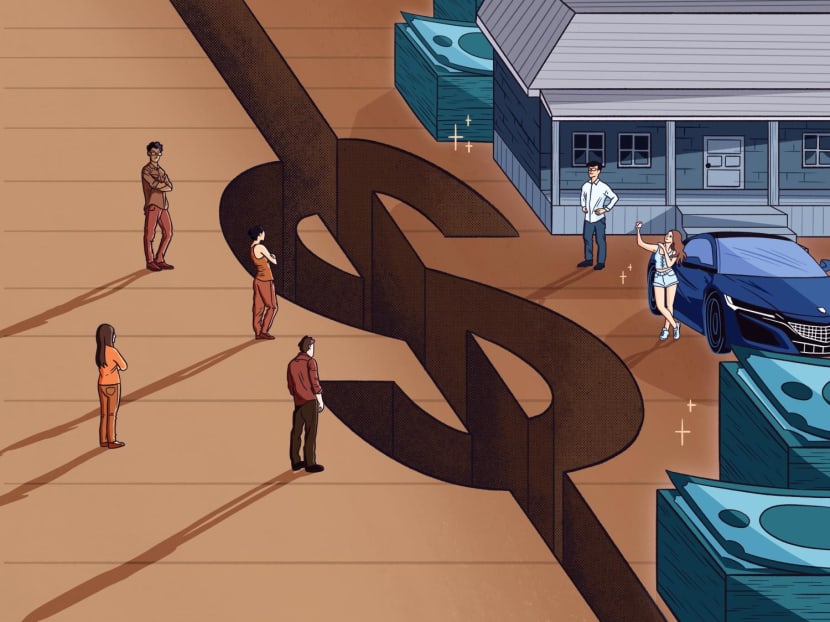
Sociologists warn that the ultra-rich will be expected to conduct themselves with restraint, and not be too flashy with their wealth.
- The number of ultra-high-net-worth individuals with a net-worth of over US$30 million (S$40 million) in Singapore is projected to rise in the next few years
- They are attracted to Singapore due to its economic hub status, stability, and safety, among other reasons
- However, sociologists warn that the ultra-rich will be expected to conduct themselves with restraint, and not be too flashy with their wealth
- Attention should also be paid on how the super wealthy contribute to society in tangible ways such as through philanthropy or job creation
- If not, it could lead to societal tension and even increased xenophobia, given Singapore’s egalitarian values
SINGAPORE — It was a typical weekday morning at Empress Road Market & Food Centre — a neighbourhood wet market off Farrer Road — where a 68-year-old retiree was spotted buying a bouquet of flowers.
She was dressed casually, save for a pair of branded shoes and watch which only the eagle-eyed might have noticed.
It was hard to tell that this woman belongs to a group known as ultra-high-net-worth individuals (UHNWIs), defined as individuals with a net worth of at least US$30 million (S$40 million).
Speaking to TODAY later, she revealed that she lives in a bungalow at Woollerton Park, just a five-minute-walk away from the market.
She shared that she is a retired legal counsel from Malaysia, who used to deal with clients from Europe and the United States.
It was only later in the interview, and only under the condition of anonymity, that she revealed that her net worth is more than US$30 million (S$40 million), though she would not say how much her actual net worth is.
“We dress up only when we go for events, otherwise, we are really down to earth, we dress simply,” said the retiree.
“It’s about humility, you want to be able to get along with everyone, and not to show off that we are three steps higher, (because) we are not,” she said. “It hurts people unnecessarily.”
“We had opportunities that enabled us to do better than others.”
According to residents and shopkeepers, Empress Road Market & Food Centre is not your typical neighbourhood wet market.
Nestled between a Housing and Development Board (HDB) estate and a condominium, it is just a short walk away from Victoria Park, Cornwall Gardens and Woollerton Park — estates which are made up largely of Good Class Bungalows, the largest class of homes in Singapore’s property landscape, with many worth eight-digit sums.
The Empress Road Market & Food Centre has inadvertently become a melting pot where both the ultra-wealthy and the average Singaporean rub shoulders with each other daily.
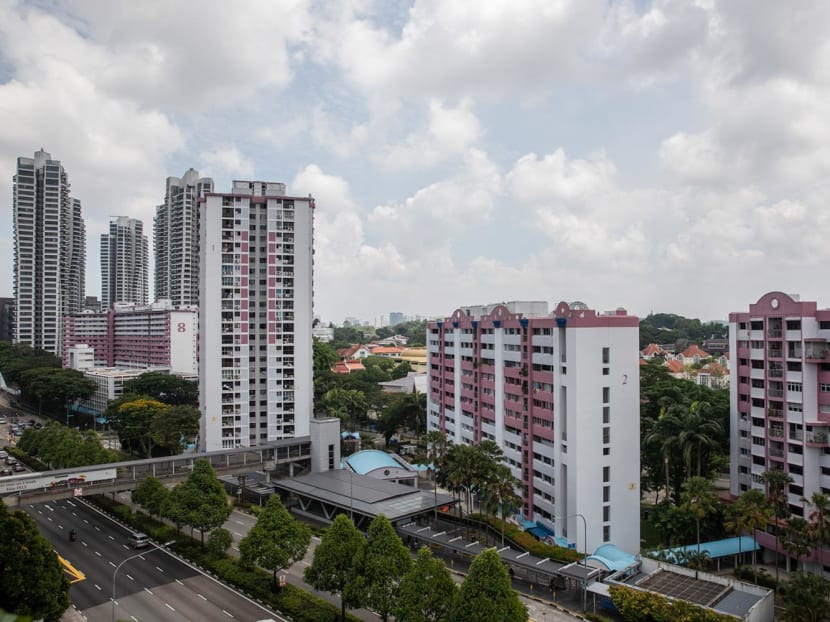
Though most of their high-net-worth customers treat them with respect, there are a few “bad apples”, they added.
For instance, Mr Chan Teck Chye, an owner of a vegetable stall at the market, said that there are several affluent customers living around the area who behave rudely.
This is especially when they believe that the goods they are buying should be cheaper, even though they may pick more “premium” ones.
“They want me to charge (them) cheaper prices, but then they behave worse than those who earn less,” said the 52-year-old.
He claimed that several such customers often engage in name-dropping, boasting about their connections to well-known people, or turn snobbish by saying things like “do you know who I am?”
However, Mr Chan added that such rude customers are few and far between.
Interactions such as those that Mr Chan described reflect the tensions that can arise when a “crazy rich” resident meets an average Singaporean.
PRESENCE OF ULTRA-RICH SHOULD BENEFIT SINGAPOREANS
Sociologists warn that such unease could become a growing problem in the coming years as the number of UHNWIs is projected to rise in Singapore.
According to a report by real estate consultancy Knight Frank released late last month, Singapore’s population of UHNWIs saw a 6.9 per cent increase to 4,498 in 2022, up from 4,206 in 2021.
This, even as the global population of such ultra-rich individuals declined by 3.8 per cent in 2022, compared to the year before.
The report also predicts that Singapore will witness a 17.7 per cent growth in its UHNWI population to around 5,300 by 2027.
Economists say that the ultra-wealthy are drawn to Singapore because of well-known factors such as the island’s political and economic stability, the absence of an explicit wealth tax compared to other jurisdictions, and incentives for the UHNWIs to expand their business activities here.
Such business activities will benefit Singapore economically, by creating more jobs and opportunities for locals, and these ultra-rich residents also have the resources to kickstart philanthropic initiatives for the good of society, the economists told TODAY.
Despite the economic gains, having a significant number of UHNWIs among the population may, from a sociological perspective, give rise to several challenges.
Given Singapore's size, sociologists said it is inevitable the ultra-rich and the average Singaporean will interact often, and there is a risk that some of these encounters may not be pleasant.
Singaporeans whom TODAY spoke to feel it is imperative that the UHNWIs do not flaunt their wealth, and treat those around them with respect regardless of their financial status.
However, sociologists said that even if the ultra-rich are more discreet about displaying their wealth, which may help preserve a “veneer” of social harmony, that alone is not enough.
Instead, one should also keep an eye on whether the ultra-wealthy here are spending their time and money in ways that can improve the lives of the average Singaporean, said sociologist Shannon Ang from Nanyang Technological University (NTU).
“None of these outward displays of wealth really tell us whether the rich are putting the bulk of their money towards the good of society, such as whether they are creating jobs, whether they are paying their taxes, whether their presence produces a net benefit for Singaporeans,” he said.
WHY ARE MORE ULTRA-RICH COMING TO SINGAPORE?
Singapore’s status as an economic hub, and its reputation as a safe place to live, are among the key reasons the ultra-wealthy are setting up homes here, said economists and heads of family offices here.
A family office is a private wealth management organisation that provides comprehensive financial and investment services to high-net-worth individuals or families.
“If you look back at the last 200 years, Singapore is a hub for economic activities of all kinds: Trading of goods, services; we are a strategically located island in Asia,” said CIMB Private Bank economist Song Seng Wun. “With Singapore’s independence, we maximised that role of Singapore as a hub.”
With this strategic positioning and economic growth that came with it, there was a spillover to Singapore providing value-added services that are extremely “people-dependent”, such as in tech, manufacturing and finance.
A corollary to this is the growth of ultra-high-net-worth individuals here, either because more Singaporeans have become successful, or that more very rich foreigners are moving here from overseas.
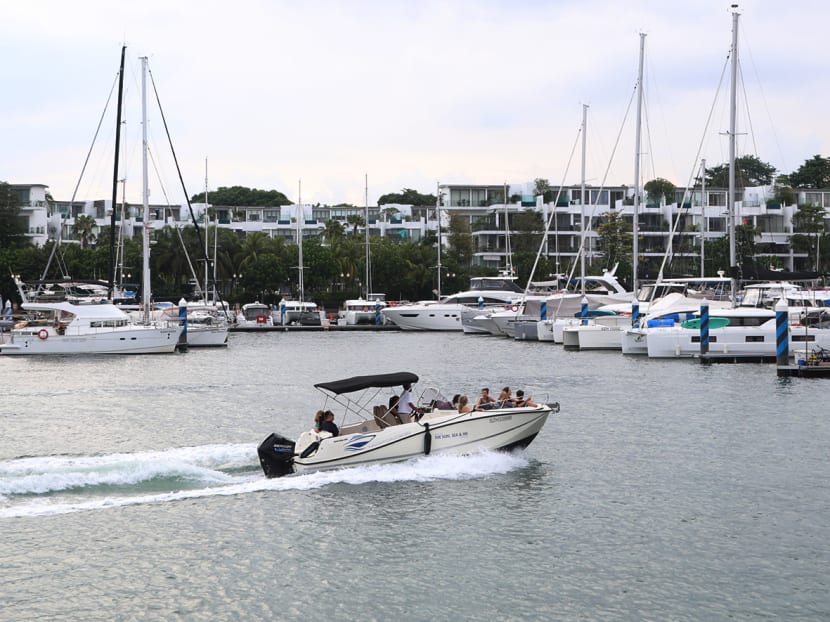
Agreeing, Ms Pearlyn Chew, partner for family office and private clients at KPMG, said that other than its economic hub status, Singapore is an attractive place for these individuals because of the city’s excellent quality of life, high standards of education and healthcare, as well as its “strategic geographical position as a gateway for investments in the region”.
“These factors have given ultra-high-net-worth individuals the confidence that Singapore is an ideal jurisdiction to be based in and influences their choice of domicile, wealth investments and succession plans,” she said.
Mr Song added in the past couple of years, Singapore has also attracted a new wave of ultra-wealthy for another reason: The perception that Singapore had responded well to the pandemic.
He said that among the other financial powerhouses in the region, such as Hong Kong and China, Singapore’s handling of the crisis was relatively smoother and its reopening to business was also quicker.
“Post-pandemic, what happened was that Singapore stood out as being able to manage the pandemic safely, and that got the attention of many who didn’t think of Singapore before.
“They realise it is not just about financial well-being, but also their own physical well-being for themselves and their family,” Mr Song said.
WHAT KIND OF ULTRA-RICH FOLKS DOES SINGAPORE WANT?
From an economic standpoint, the Government has signalled that the ultra-wealthy who come here should preferably create jobs and opportunities for Singaporeans, and on a large scale.
For one, the Government has tightened requirements for eligibility to the Global Investor Programme (GIP), which allows individuals to apply for permanent residency (PR) under the scheme.
The GIP, first introduced in 2004, used to grant PR status to eligible foreigners who invest at least S$2.5 million in a new or existing business, but this figure has been raised significantly to S$10 million, inclusive of paid-up capital, since March this year.
The higher investment requirement is indicative of how seriously the Government views the UHNWIs' potential to contribute to Singapore’s economy, said Mr Song.
“Clearly, the Government wants to see track records,” he said. “If an individual says that he can contribute to the Singapore economy, then show me.”
Mr Song said that there are likely many ultra-wealthy individuals or families in the region who want to invest in Singapore and set up companies here, but it is imperative that the Government choose only those who are able to add the most value and opportunities for the average Singaporean.
“Simply put, Singapore can be picky, because there is a queue,” he said.
Agreeing, Ms Chew added: “Singapore will need to attract ‘top-tier families’ who are dedicated to growing alongside the nation and integrating into its social and economic fabric.”
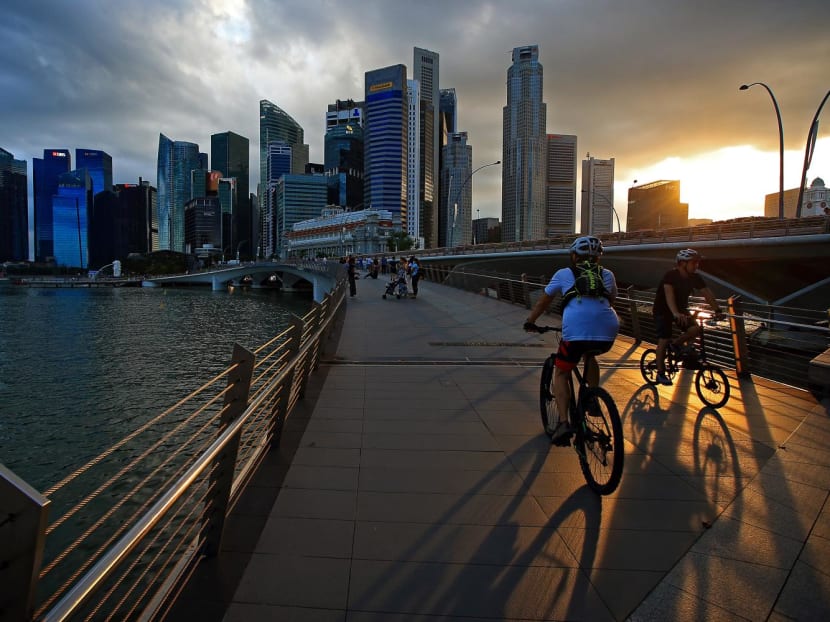
The most effective way that these UHNWIs can help Singapore is not just in creating jobs for Singaporeans, but also in helping the less-fortunate.
Should their businesses create jobs only for the upper-middle class for instance, this would mean that only one segment of society progresses, while others are left behind, said Mr Song.
“Finding the balance is making sure that not just one or two segments of society benefit, but across the board, including the lower income benefit as well,” he added.
This can be done through not only creating jobs for diverse segments of the population, but also via philanthropic work and setting up of charities or scholarships for the less fortunate.
The Tanoto Foundation, for example, has provided tertiary education scholarships, education infrastructure development and medical research funding, among other initiatives, in Singapore.
It was founded by Indonesian businessman and billionaire Sukanto Tanoto and his wife Tinah Bingei Tanoto, who both live in Singapore.
Indeed, many of the UHNWIs here have embarked on such ventures, no less with the help of family offices.
Mr Keoy Soo Earn, leader of Deloitte Private Southeast Asia, which serves the needs of private companies and family businesses, said that the firm has observed an increasing amount of interest from the ultra-wealthy in engaging in philanthropic efforts.
"By channelling their resources in a strategic manner, families can make meaningful contributions to important causes," he added.
Agreeing, Ms Chew from KPMG said that philanthropic efforts and contributing to the community play an “important part in sinking roots in Singapore” for these individuals.
Besides monetary donations, this can be in the form of "mentoring, sharing of experience, and expertise in their entrepreneurship journey”, she said, which "reinforce their commitment to grow alongside the country”.
There are also those who help in smaller ways.
Ms Joan Pereira, a Member of Parliament for Tanjong Pagar Group Representation Constituency, told TODAY that she has observed many instances of residents living in landed or private estates “coming forward to volunteer their time or to contribute resources to help the community”.
Her ward, Henderson-Dawson, consists of several estates with Good Class Bungalows including Holland Park, Ridley Park and Chatsworth Park.
While she is unable to ascertain their net wealth, she said that some of such residents, who live in landed homes and condominiums, participate in community enrichment programmes such as reading for children living in rental blocks.
“Every year, residents in the private estates, including expatriates, have sponsored and volunteered their time to organise a Lunar New Year Eve lunch for our elderly who live alone.”
However, even with these positive examples, Ms Pereira said that she is still concerned about equality and stratification in the Singapore society.
“With the growth of Singapore’s economy and the rising affluence of the population, there is a need to slow down the stratification of our society, reduce income equality and improve social mobility,” she said.
“By doing our best to level the playing field as much as possible, this will help to provide a safe environment for our people to pursue their aspirations.”
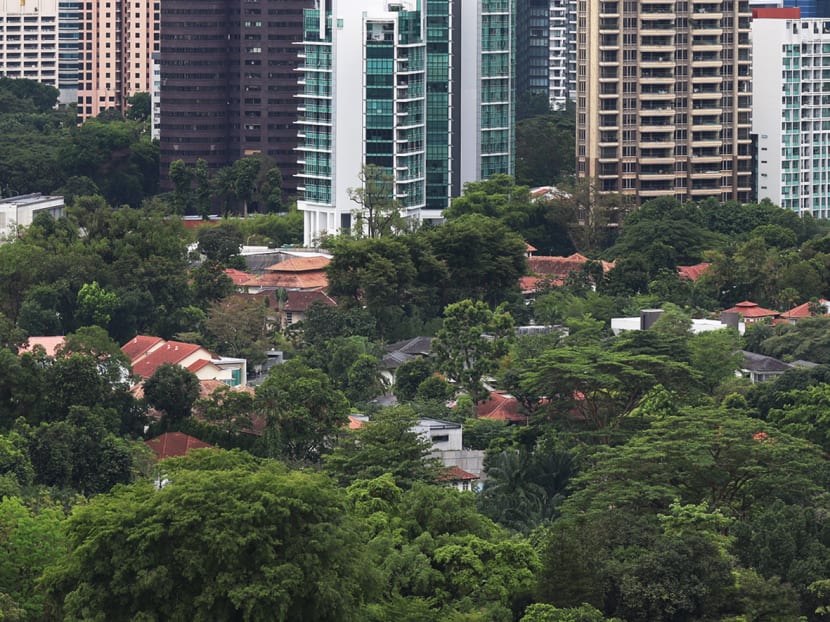
WHAT CULTURAL NORMS DO THE ULTRA-WEALTHY HAVE TO BE AWARE OF?
Back in 2018, an unauthorised secondary school social studies guidebook, which contained sweeping generalisations about people in Singapore from high and low socio-economic status (SES), generated significant flak online, with Prime Minister Lee Hsien Loong weighing in on the incident during a speech in Parliament.
The book, among other things, claimed that those of low SES speak Singlish, play soccer or basketball, and eat at hawker centres, while the high SES speak formal English, play golf or tennis, and only eat at fine restaurants.
“Singaporeans were appalled, and rightfully so,” Mr Lee told Parliament.
He added that while lifestyle choices can become separators in society to show “who is in and who is out”, the general tone of Singapore is “one of restraint”.
“We must discourage people from flaunting their social advantages. We should frown upon those who go for ostentatious displays of wealth and status, or worse, look down on others less well-off and privileged,” he had said.
“We should emphasise our commonalities, not accentuate our differences.”
Indeed, the sentiment that the wealthy should not show off their social advantages cannot be more apparent than when looking at online discussions related to the issue.
Last month, a LinkedIn user by the name of Satwant Kaur had posted on the professional networking platform that those who live in HDB estates are “very different” from “private residence people”.
She added that it was hard for her to live in Singapore when the Government allows “HDB people” to take up jobs in private residential estates, and that contact with them should be limited.
The post sparked outrage among netizens, with some calling her post discriminatory and elitist, while others branded the content as hateful.
The post has since been deleted.
Some Singaporeans whom TODAY spoke to also expressed a similar disdain for individuals who engage in ostentatious display of their wealth.
One resident at a HDB estate along Farrer Road, which overlooks the Woollerton Park estate, said that he sometimes feels a “tinge of jealousy” when he sees children, whom he believes come from well-off families, walking around near his estate using expensive headphones.
“I’m working so hard just to buy my headphones, but this kid is just walking around with a pair of (branded headphones),” said the 37-year-old, who wanted to be known only as Mr Heng.
However, the jewellery business owner said that he does not let these sentiments fester, because he rationalises that having such wealth is what he, and many Singaporeans, aspires for.
“In the end, if you want to be wealthy, you can’t hate wealthy people,” he said. “You can’t dislike these people if you want to be them, and you want your children to be them.”
An aversion to the flashiness aside, some Singaporeans are more concerned with the attitude shown by the ultra-rich towards those around them.
“I think the (UHNWIs) should not exacerbate their class differences because they have to empathise with those less fortunate around them,” said Ms Sandra Choong, a resident at d’Leedon, a condominium along Farrer Road close to several landed property estates.
“Maybe they can’t help to wear branded goods and drive nice cars, but at least they should not put down others, the way they talk is the most important,” said the 44-year-old housewife.
Sociologists pointed out that the culture of restraint as highlighted by PM Lee is one that is traditionally prevalent in Asian societies such as Singapore.
Associate Professor Vincent Chua, from the Department of Sociology and Anthropology at National University of Singapore (NUS), said that the flaunting of wealth is not widely accepted in Singapore due to the presence of a “communitarian ideology”.
“As opposed to the ‘rights’ of individuals to get rich and flaunt their wealth, the emphasis here is more weighted towards the ‘duty’ that one has of preserving social harmony between groups.”
He said that this is why the ultra-wealthy are “relatively well-hidden” in Singapore.
“Standardisation is valued over standing out from the crowd,” Assoc Prof Chua added.
Agreeing, NUS sociologist Tan Ern Ser said that such disdain for flashiness points towards an egalitarian culture here, which is the principle that all people are equal and deserve equal rights and opportunities.
"Broadly speaking, most Singaporeans see themselves as middle class and potentially upwardly mobile," said Dr Tan.
"This in turn translates into a more or less 'egalitarian' culture, which would therefore not look upon 'showiness' very kindly."
This is because with most Singaporeans being middle class, they will see those who stick their head out of the crowd as "deviants", he added.
Given Singapore’s density, it is inevitable that the ultra-rich will come into contact with the average Singaporean in their daily lives.
Mr Heng, the jewellery business owner, said that at Empress Place Market & Food Centre, he often observes these interactions, such as those between the ultra-wealthy retiree and the shopkeepers.
By and large, he has had no issues with any of these UHNWIs, and sees them as no different from himself in these public spaces.
“Everyone still ends up going to the market — if you are a retired uncle who lives in a HDB flat, or a multi-millionaire living in a good class bungalow, you still end up queuing at the same hawker stall,” he said.
“It doesn’t matter, because (the ultra-wealthy) queue up nicely, it’s not as if they behave in a way that is unpleasant and distasteful,” he said.
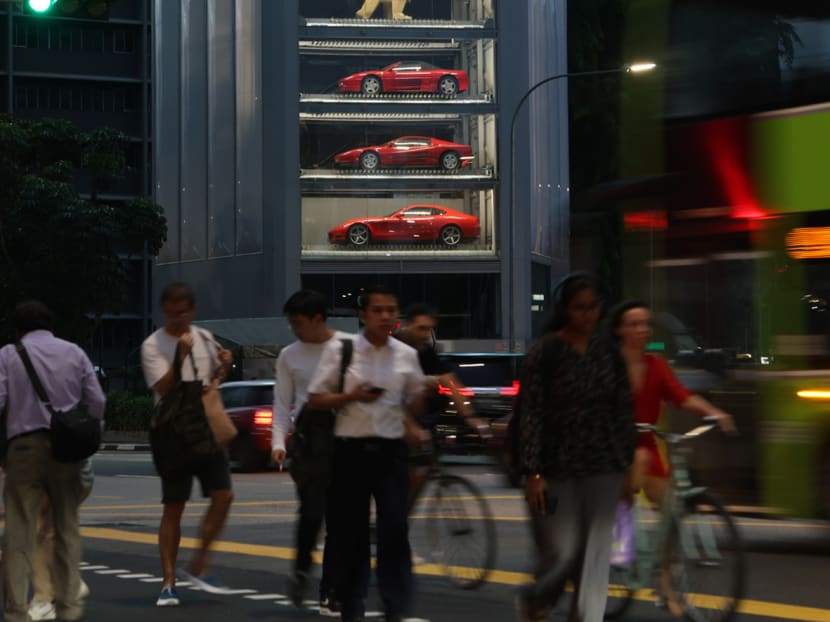
COULD AN EROSION OF NORMS THREATEN SINGAPORE’S SOCIAL FABRIC?
While the prevailing sentiment among the ultra-wealthy here is one of restraint, the fact remains that it is not the same in other parts of the world, including in some Asian societies.
In China, the flaunting of wealth has become so commonplace that the Chinese government and social media platforms have cracked down on such behaviour.
For instance, the social media app Little Red Book, or Xiaohongshu, which is famous for displaying the lavish lifestyles of the rich, had updated its guidelines in 2021 as a way to restrain its users from overtly showing off their wealth, according to a report by Chinese publication Jing Daily.
Jing Daily also reported that in 2020 and early 2021, Chinese social media platform Douyin had removed thousands of posts and banned accounts for flaunting wealth in short videos on its portal.
In 2021, the Cyberspace Administration of China announced that celebrities in the country will not be allowed to show off their wealth or “extravagant pleasure” on social media.
According to a report by Business Insider, China’s internet regulation agency said that celebrities must “follow public order and good customs, adhere to correct public opinion orientation and value orientation, promote socialist core values, and maintain a healthy style and taste”.
Ms Choong, the housewife, said that while the ultra-rich in Singapore are generally restrained in how they display their wealth, this might not always be the case in the future.
“I’m very worried, because in social media, you see a lot of people get influenced by the rich flaunting their riches, mainly from overseas, or even local influencers,” she said.
Indeed, there are more local influencers here who are not shy to show off their wealth and possessions.
Though most of these influencers are likely not UHNWIs, she is afraid that this culture of showiness will permeate across the board.
“I worry that younger generations who come from rich families will not have the values of humility, kindness, and empathy anymore,” said Ms Choong.
An increased culture of showiness here would lead to an accentuation of class differences, which could “tear at social cohesion”, and also stir feelings of envy, said NUS’ Assoc Prof Chua.
“Status is especially important here, and our propensity to compare has produced not a small amount of anxiety,” he said.
“It happens in the schools in the competition of places, for grades, scholarships and other awards (and) in workplaces too, wage scales are more finely differentiated.”
The enhanced sense of class differences arising from the wealthy displaying their assets not only creates tensions among those of different financial status, but there could also be spillover effects into tensions around nationality as well.
For instance, it could arouse “xenophobic tendencies” among the population, said Dr Tan, the sociologist, especially if those who are showy happen to be migrants who “benefit from Singapore’s stability, without paying back”.
While there is some value in ensuring that the ultra-wealthy abide by the social norms here in order to preserve a sense of social integration, some sociologists believe that such an approach detracts from the main issue — whether the ultra-wealthy are actually contributing to Singapore.
NTU’s Assistant Professor Ang added that the focus on how the ultra-wealthy conduct themselves in their day-to-day lives is a “red herring”.
“There is no point in focusing on whether they are ostentatious, or whether they live among the rest of us, simply to give a veneer of social integration, because that’s not why they are here or why we let them in in the first place,” he said.
“Instead, we should ask: Are they spending their time and money in ways that help to improve the lives of all Singaporeans, or are they just finding ways to evade taxes and doing the bare minimum?”
He added that while the ultra-wealthy can tone down their showiness to integrate into Singapore society and relate to the common man, the fact remains that the wealth that they have gives them an inherent advantage in terms of opportunities and resources available to them that would not be available to the average Singaporean.
“It does not matter how much we whine about them being too showy with their wealth, as long as Singapore believes the capital they have will benefit the country,” Assoc Prof Ang said.
“Trying to police the way the rich use their wealth may be cathartic for some, but we (Singapore) created the environment that enables them to do what they do.”











